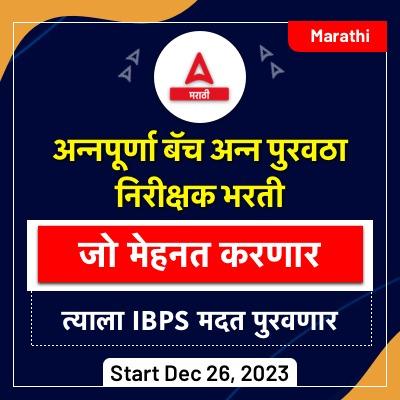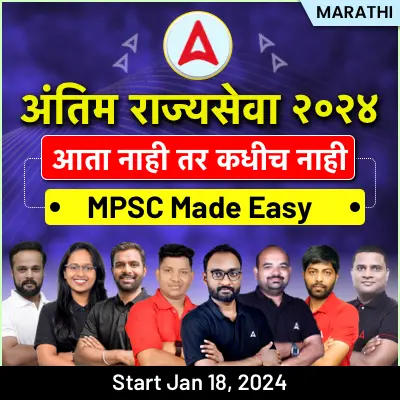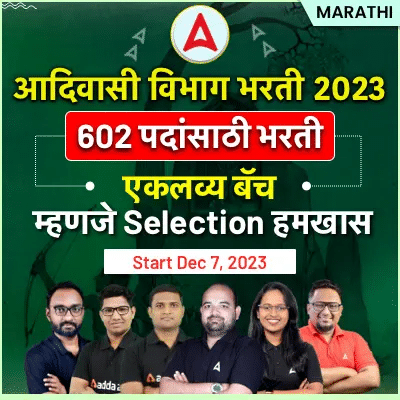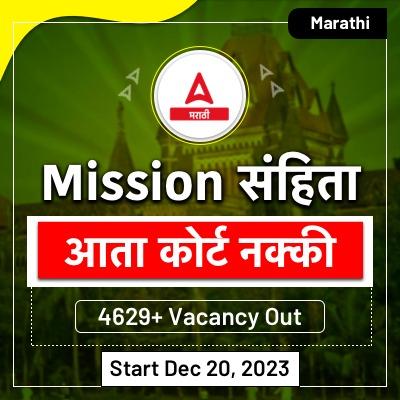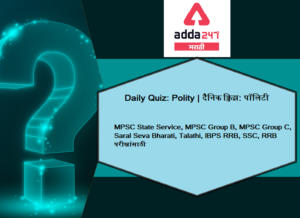
पॉलिटी दैनिक क्विझ मराठीमध्ये: 11 मे 2021
महाराष्ट्र राज्य लोकसेवा आयोग दरवर्षी वेगवेगळ्या परीक्षे मार्फत हजारो विद्यार्थ्यांची भरती करून घेते MPSC State Service, MPSC Group B, MPSC Group C, Saral Seva Bharati, Talathi, UPSC, SSC, RRB अशा अनेक परीक्षांमार्फत हजारो जागांची भरती दरवर्षी निघते ज्यात लाखो इच्छुक हजार किंवा त्याहूनही कमी जागांसाठी अर्ज करतात. आपण एमपीएससी आणि इतर परीक्षाची तयारी करत असाल तर आपल्याला क्विझ देण्याचे महत्त्व माहित असलेच पाहिजे. बर्याच विद्यार्थ्यांना अभ्यासाचे पुरेसे तास दिले जात असतानाही त्यांना या परीक्षांची पूर्तताही करता आली नाही कारण ते त्यांचे परीक्षण वेळेवर पूर्ण करू शकत नाहीत आणि संशोधन करण्याचा उत्तम मार्ग म्हणजे त्या संबंधित विषयाची किंवा विषयाची क्विझ देणे कारण आपण या मार्गाने कव्हर करू शकता कमी वेळात जास्तीत जास्त विषय. आम्हाला Add 247 मराठी येथे चांगल्या अभ्यास सामग्रीचे मूल्य समजले आहे आणि म्हणूनच आम्ही सर्व विषयांसाठी आपल्याला क्विझ प्रदान करीत आहोत. दैनिक क्विझ देऊन तुम्ही तुमच्या तयारीची पातळी तपासू शकता.
चालू घडामोडी, भूगोल, अर्थशास्त्र, पर्यावरण, सामान्य विज्ञान, इतिहास, पॉलिटी अशा सर्व स्पर्धात्मक सामान्य अभ्यास विषयांमध्ये पॉलिटीचाही तेव्हडाच महत्वाचा वाटा आहे. तर चला पॉलिटी बद्दल तुमची तयारी तपासण्यासाठी खालील 11 मे 2021 ची पॉलिटीची दैनिक क्विझ पहा.
Q1. खालील विधानांवर विचार करा
- घटनेच्या अनुच्छेद 212 मध्ये न्यायालयांना विधिमंडळातील कामकाजाची चौकशी करण्यास मनाई आहे.
- अनुच्छेद 142 सर्वोच्च न्यायालयाला असा निर्णय घेण्यास किंवा संपूर्ण न्याय करण्यासाठी आवश्यक असलेला आदेश काढण्यासाठी विवेकाधिकार प्रदान करते.
वर दिलेले कोणते विधान / विधाने बरोबर आहे /आहेत
(a) फक्त 1
(b) फक्त 2
(c) दोन्ही 1 आणि 2
(d) 1 किंवा 2 देखील नाही
Q2. गुणकारी याचिकेसंबंधी खालील विधानाचा विचार करा
- अंतिम शिक्षेविरूद्ध आढावा याचिका फेटाळून लावल्यानंतर ते दाखल केले आहे.
- भारतीय घटनेत त्याचा उल्लेख नाही.
वर दिलेले कोणते विधान / विधाने बरोबर आहे /आहेत
(a) फक्त 1
(b) फक्त 2
(c) फक्त1 आणि 2
(d) 1 किंवा 2 देखील नाही
Q3. भारतीय राज्यघटनेत आपल्या नागरिकांना निरपेक्ष ‘एकत्र जमण्याचा अधिकार’ तरतूद आहे. या अधिकारावर वाजवी निर्बंध लादण्यासाठी खालील पैकी कोणती कारणे असू शकतात?
(a) सार्वजनिक सुव्यवस्था आणि नैतिकता आणि सभ्यता
(b) सार्वजनिक आरोग्य आणि राज्याचे सुरक्षा
(c) सार्वजनिक सुव्यवस्था आणि सार्वजनिक आरोग्य
(d) भारताची सार्वभौमत्व आणि अखंडता आणि सार्वजनिक सुव्यवस्था
Q4. लोकसभेत तहकूब गती करण्याच्या प्रस्तावाबाबत खालीलपैकी कोणते विधान योग्य नाही?
(a) सभासद बसलेल्या कोणालाही तहकूब गती एकापेक्षा जास्त सूचना देऊ शकत नाही.
(b) राज्य सरकारच्या विशेष अधिकारक्षेत्रात येणारी बाब तहकूब गती अंतर्गत अस्वीकार्य आहे.
(c) तहकूब गती विशेषाधिकाराचा प्रश्न उपस्थित करीत नाही.
(d) जर अध्यक्षांनी तहकूब गतीला संमती देण्यास नकार दिला तर खुर्ची कारणे देण्यास बांधील आहे.
Q5. लोकअदालतींसंदर्भात पुढीलपैकी कोणते विधान योग्य नाही?
(a) जेव्हा लोक अदालतमध्ये प्रकरण दाखल केले जाते तेव्हा कोर्टाचे शुल्क देय नसते.
(b) लोक अदालतमध्ये सामाजिक कार्यकर्ते मध्यस्थ / सलोखा म्हणून काम करू शकतात.
(c) लोक न्यायालयीन सदस्यांची केवळ वैधानिक समालोचकांची भूमिका असते आणि त्यांची न्यायालयीन भूमिका नसते.
(d) स्थायी लोकअदालतींचे कार्यक्षेत्र रु. एक लाख.
Q 6. मूलभूत अधिकाराशी विसंगत असलेला कायदा घटनेतील खालीलपैकी कोणत्या तरतुदींनुसार निरर्थक घोषित केला जाईल
(a) कलम 12
(b) कलम 13
(c) कलम 34
(d) कलम 35
Q 7. मूलभूत अधिकाराविषयी खालील विधानांचा विचार करा
- मूलभूत अधिकार, घटनात्मक हक्क न्याय्य आहेत.
- घटनात्मक अधिकाराचे उल्लंघन केल्यामुळे ते थेट उच्च न्यायालयात जाऊ शकतात परंतु सर्वोच्च न्यायालयात जाऊ शकत नाहीत.
- संसद कोणत्याही मूलभूत अधिकारामध्ये सुधारणा किंवा हटवू शकते.
वर दिलेली कोणती विधाने बरोबर आहेत?
(a) 1 आणि 2
(b) 2 आणि 3
(c) 1 आणि 3
(d) 1, 2 आणि 3
Q8. भारतीय संविधानातील कोणत्या भागात मार्शल लॉ चे वर्णन केले गेले आहे?
(a) भाग III
(b) भाग IV
(c) भाग XVIII
(d) भाग V
Q9. खालील विधानांवर विचार करा
- फेडरल कोर्टाची स्थापना सनदी कायदा, 1833 अंतर्गत झाली.
- सर्वोच्च न्यायालयाने ब्रिटीश प्रिव्हि कौन्सिलची जागा घेतली जी भारत सरकार अधिनियम, 1935 अंतर्गत सर्वोच्च न्यायालयाने अपील केलेली होती.
वर दिलेली कोणती विधाने बरोबर आहेत?
(a) फक्त 1
(b) फक्त 2
(c) दोन्ही 1 आणि 2
(d) 1 किंवा 2 देखील नाही
Q10. तिसर्या परिशिष्टासाठी शपथ किंवा निश्चितीच्या स्वरूपाच्या संदर्भात खालील विधानांवर विचार करा
- राष्ट्रपती
- संघ लोक सेवा आयोगाचे अध्यक्ष
- राज्य विधानसभेच्या निवडणुकीसाठी उमेदवार
योग्य कोड निवडा:
(a) 1 आणि 2
(b) 2 आणि 3
(c) 1 आणि 3
(d) 1, 2 आणि 3
Solutions
S1.Ans.(c)
Sol.
Recently, the Supreme Court invoked its special powers under Article 142 of the Constitution to remove a Manipur minister The Supreme Court removed Thounaojam Shyamkumar Singh, from the state cabinet and restrained him from entering the Legislative Assembly till further orders. – A disqualification petition against the minister was pending before the Speaker since 2017 but the Speaker failed to take the decision within a reasonable time period. – The Speaker also failed to take any decision within the stipulated time period of 4 weeks as provided by the Supreme Court in the 21st January 2020 order.
Article 212 of the Constitution bars courts from inquiring into proceedings of the Legislature. In this case, however, prompted by the fact that the Speakers conduct has been called into question on several occasions, the Court said it was constrained to invoke the court’s extraordinary powers under Article 142 of the Constitution.
S2.Ans.(c)
Sol.
About Curative Petition: The concept of the curative petition first evolved by the Supreme Court
in Rupa Ashok Hurra vs. Ashok Hurra & another case (2002) on the question of whether an aggrieved person is entitled to any relief against the final judgment/order of the Supreme Court, even after the dismissal of a review petition. Hence statement 1 is correct.
- It is based on the interpretation of Article 137, which provides that in the matter of laws and rules made under Article 145, the Supreme Court has the power to review any judgment pronounced (or order made) by it. Thus, it is not mentioned in the question directly. Hence statement 2 is correct.
S3.Ans.(d)
Sol.
Freedom of Assembly under article 19 of the Indian constitution, grants every citizen has the right to assemble peaceably and without arms.
- It includes the right to hold public meetings, demonstrations, and take out processions.
- This freedom can be exercised only on public land and the assembly must be peaceful and unarmed.
- This provision does not protect violent, disorderly, riotous assemblies, or one that causes breach of public peace or one that involves arms.
- This right does not include the right to strike.
- The State can impose reasonable restrictions on the exercise of the right of assembly on two grounds,
- sovereignty and integrity of India and
- public order including the maintenance of traffic in the area concerned. Hence option (d) is the correct answer.
- Under Section 144 of Criminal Procedure Code (1973), a magistrate can restrain an assembly, meeting, or procession if there is a risk of obstruction, annoyance, or danger to human life, health or safety or a disturbance of the public tranquility or a riot or any affray.
S4.Ans.(d)
Sol.
The primary object of an adjournment motion is to draw the attention of the House to a recent matter of urgent public importance having serious consequences. The adjournment motion is thus an extraordinary procedure which, if admitted, leads to setting aside the normal business of the House for discussing a definite matter of urgent public importance.
- The subject matter of the motion must have a direct or indirect relation to the conduct or default on the part of the Union Government. A matter which falls within the jurisdiction of a State Government is inadmissible, but a matter concerning the constitutional developments in a State or atrocities on the Scheduled Castes and Scheduled Tribes and other weaker sections of the society which bring the Union Government into the picture may be considered for admission on merits.
- A member can give not more than one notice for anyone sitting.
- The refusal to give consent is in the absolute discretion of the Chair and the Chair is not bound to give any reasons, therefore. Hence option (d) is the correct answer.
- While giving consent to an adjournment motion the Speaker is guided by the following principles:
- The matter raised is definite, urgent, and is of public importance.
- It relates to a specific matter of recent occurrence.
- It does not raise a question of privilege.
- It does not revive discussion on a matter already discussed in the same session.
S5.Ans.(d)
Sol.
Permanent Lok Adalats have been set up as permanent bodies with a Chairman and two members for providing a compulsory pre-litigation mechanism for conciliation and settlement of cases relating to Public Utility Services like transport, postal, telegraph, etc. The jurisdiction of the Permanent Lok Adalats is up to Rs. 1 crore. The award of the Permanent Lok Adalat is final and binding upon the parties.
S6.Ans.(b)
Sol.
Article 13 declares that all laws that are inconsistent with or in derogation of any of the fundamental rights shall be void. In other words, it expressively provides for the doctrine of judicial review. This power has been conferred on the Supreme Court (Article 32) and the high courts (Article 226) that can declare a law unconstitutional and invalid on the ground of contravention of any of the Fundamental Rights.
S7.Ans.(d)
Sol.
The constitutional rights are also equally justiciable, they are different from Fundamental Rights. In case of violation of a Fundamental Right, the aggrieved person can directly move the Supreme Court for its enforcement under Article 32, which is in itself a fundamental right. But, in case of violation of the above rights, the aggrieved person cannot avail of this constitutional remedy. He can move directly to the High Court by an ordinary suit or under Article 226 (writ jurisdiction of high court). (statement 1 and 2 are correct)
Further,
in the Golak Nath case2 (1967), the Supreme Court reversed its earlier stand. In that case, the constitutional validity of the Seventeenth Amendment Act (1964), which inserted certain state acts in the Ninth Schedule, was challenged. The Supreme Court ruled that the Parliament cannot abridge or take away any of these rights. A constitutional amendment act is also a law within the meaning of Article 13 and hence, would be void for violating any of the Fundamental Rights.
The Parliament reacted to the Supreme Court’s judgment in the Golak Nath case (1967) by enacting the 24th Amendment Act (1971). This Act amended Articles 13 and 368. It declared that the Parliament has the power to abridge or take away any of the Fundamental Rights under Article 368 and such an act will not be law under the meaning of Article 13. However, in the Kesavananda Bharati case3 (1973), the Supreme Court overruled its judgment in the Golak Nath case (1967). It upheld the validity of the 24th Amendment Act (1971) and stated that Parliament is empowered to abridge or take away any of the Fundamental Rights. At the same time, it laid down a new doctrine of the ‘basic structure’ (or ‘basic features’) of the Constitution. It ruled that the constituent power of Parliament under Article 368 does not enable it to alter the ‘basic structure’ of the Constitution. This means that the Parliament cannot abridge or take away the Fundamental Right that forms a part of the ‘basic structure’ of the Constitution. (Statement 3 is correct)
S8.Ans.(a)
Sol.
Article 34 in Fundamental right (12-35) In Part III of the Constitution deals with Martial law in India.
Note Part XVIII deals with provisions of National emergency and it is different from Martial Law
S9.Ans.(d)
Sol.
The Supreme Court of India was inaugurated on January 28, 1950.
- It succeeded the Federal court of India established under the Government of India Act, 1935. Hence statement 1 is not correct.
- However the jurisdiction of the Supreme Court is greater than that of its predecessor. This is
because the Supreme Court has replaced the British Privy Council which is the highest court of Appeal after the commencement of the Indian constitution in 1950. Hence statement 2 is not correct.
S10.Ans.(d)
Sol.
Third Schedule Forms of Oaths or Affirmations for:
- The Union ministers
- The candidates for election to the Parliament
- The members of Parliament
- The judges of the Supreme Court
- The Comptroller and Auditor-General of India
- The state ministers
- The candidates for election to the state legislature
- The members of the state legislature
- The judges of the High Courts
Hence option (d) is the correct answer.

